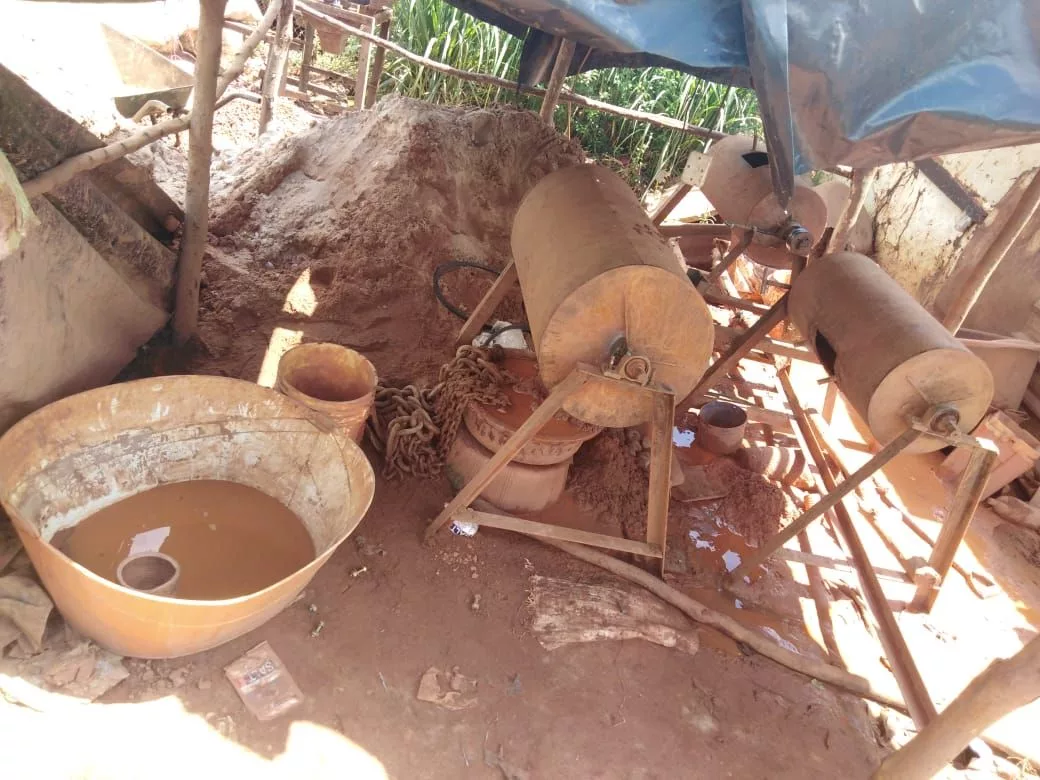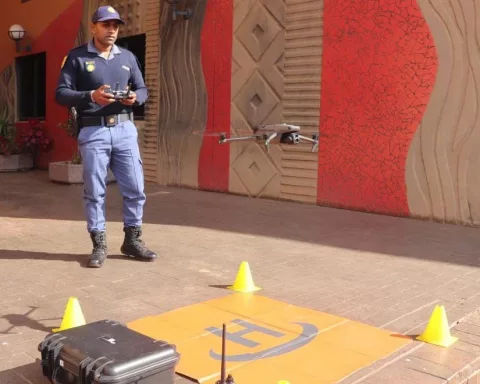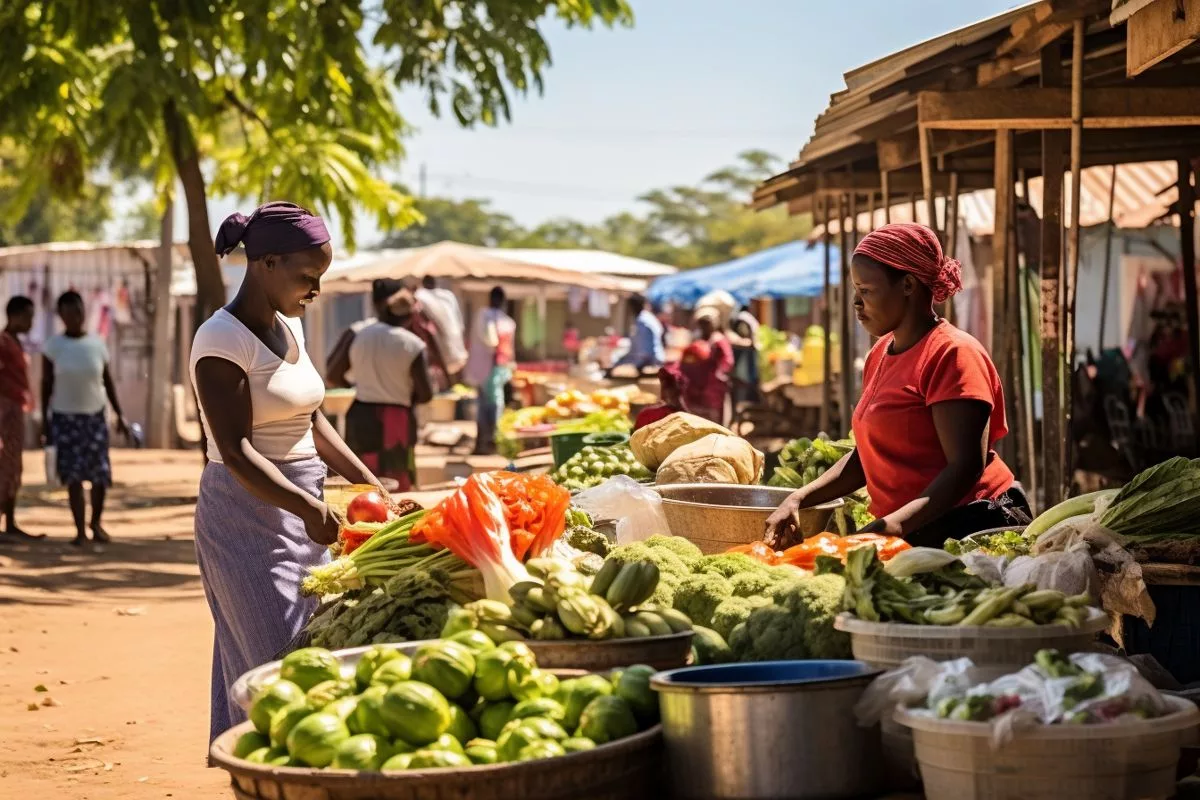South African police arrested two individuals for their suspected involvement in illegal mining and possession of unprocessed precious metals. The police confiscated illegal mining equipment during the operation, which started with a routine patrol. The suspects, citizens of Mozambique, are scheduled to appear in court on 18th December 2023 and may also face charges related to the Immigration Act. Despite the ongoing challenge posed by illegal mining in South Africa, the determined actions of law enforcement convey a strong message of zero tolerance for such activities and highlight the country’s commitment to protecting its valuable resources and people.
South African Police Service (SAPS) apprehended two individuals for their suspected engagement in unlawful mining and possession of unprocessed precious metals. In the crackdown, the police confiscated illegal mining apparatus and equipment. The suspects are scheduled to make a court appearance on 18th December 2023, and the case has been handed over to the Hawks. This event stands as a stark reminder of the continuous hurdles posed by illegal mining in South Africa.
A Day in December
On an ordinary day in December 2023, the South African Police Service (SAPS) found themselves in the midst of an exceptional operation. The vigilant personnel of Hartbeespoortdam K9 and Visible Policing, tuned into the nuances of their environment, apprehended two individuals, aged 20 and 38, for their suspected engagement in unlawful mining and possession of unprocessed precious metals.
The operation began in the Ten Rooms informal settlement, a vast conglomeration of homes where the impressive crackdown occurred. While conducting their standard patrol, the police noticed a group of men abruptly darting away from one of the dwellings. The SAPS officers, with their trained observations, noticed this strange activity.
Guided by their instincts, the police advanced towards the now abandoned home, where they discovered a fascinating array of items; sacks filled with soil, three phenduka machines – apparatus often linked with illegal mining activities, and a generator. The pieces of a secret mining setup began to materialize from the ordinary.
The Unfolding Scenario
As the narrative deepened, further investigation led to a nearby plot, culminating in the arrest of the suspects. During the apprehension, the police confiscated more condemning evidence, including two more phenduka machines, fuel containers, and a jackhammer—a tool commonly used in manual mining.
The suspects, both citizens of Mozambique, are scheduled to make a court appearance on 18th December 2023. The charges laid against them encompass unlawful mining and possession of unprocessed precious metals, grave offenses carrying weighty penalties. The pair is also anticipated to face charges related to contravention of the Immigration Act, 2002.
The probe into the matter is far from concluded. The Directorate for Priority Crime Investigation (DPCI), commonly known as the Hawks, has assumed responsibility for the case. Their role is significant considering the intricacy of the crime and the international angle it introduces to the case.
The Persistent Challenge and the Continual Fight
This event stands as a stark reminder of the continuous hurdles posed by illegal mining in South Africa. The profitable appeal of precious metals continually motivates individuals to pursue unlawful channels of extraction and profiteering from these resources. Yet, the vigilant members of SAPS, unflinching in the face of the colossal task, continually rise to the occasion, safeguarding the nation’s resources and upholding the law.
This narrative, despite its routine origin, is far beyond ordinary. It showcases the mettle and tenacity of the SAPS, their dedication to protecting South African society, and the nation’s valuable resources. The successful operation stands as a testament to their professionalism and commitment—a compelling display of their relentless quest for justice amidst adversity.
As this narrative continues to unfold, it will be the determination and resilience of law enforcement agencies like the SAPS and DPCI that will spearhead efforts in curbing unlawful mining activities and preserving the rule of law. Their actions convey a strong message of zero tolerance for such activities, reinforcing the commitment of the South African government to protect its valuable assets and its people.
The Bigger Picture
In essence, the actions of the SAPS go beyond the mere apprehension of suspects. They signify a broader, more critical endeavor to protect South Africa’s geological heritage. It tells the story of a nation’s fight against the unlawful exploitation of its natural resources, the alertness of its police force, and the relentless efforts of its judiciary in enforcing the law.
Ultimately, this story is less about those who aim to illicitly profit from South Africa’s mineral wealth, and more about the courageous individuals dedicated to protecting these resources from such exploitation. Their unwavering devotion to justice is a glowing example of public service, offering a beacon of hope in the battle against illicit mining – a struggle that is far from over, but one that we are not confronting alone.
1. Who did the South African police arrest?
The South African police arrested two individuals suspected of engaging in illegal mining and possessing unprocessed precious metals. The suspects were citizens of Mozambique.
2. What led to the arrests?
The arrests occurred during a routine patrol by the Hartbeespoortdam K9 and Visible Policing units in the Ten Rooms informal settlement. The police noticed a group of men darting away from one of the dwellings, which led them to investigate and discover a secret mining setup.
3. What did the police confiscate during the operation?
The police confiscated illegal mining equipment, including sacks filled with soil, three phenduka machines, and a generator. They also found additional equipment, such as two more phenduka machines, fuel containers, and a jackhammer, during the arrest of the suspects.
4. What charges do the suspects face?
The suspects face charges related to engaging in unlawful mining and possession of unprocessed precious metals. They may also face charges related to contravening the Immigration Act, 2002.
5. Who is responsible for investigating the case?
The Directorate for Priority Crime Investigation (DPCI), commonly known as the Hawks, has assumed responsibility for the case. Their role is significant considering the intricacy of the crime and the international angle it introduces to the case.
6. What does this event signify in the larger context?
This event highlights the ongoing challenge posed by illegal mining in South Africa and the determined actions of law enforcement to combat it. It signifies a broader endeavor to protect South Africa’s geological heritage and preserve the rule of law. It also showcases the mettle and tenacity of the SAPS, their dedication to protecting South African society, and the nation’s valuable resources.












